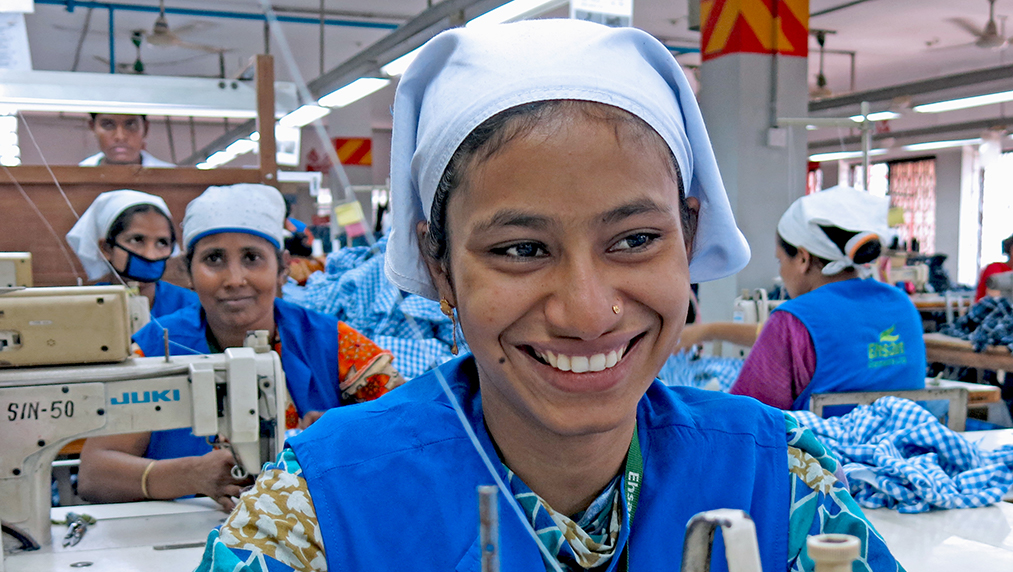GET IN TOUCH
- Please wait...

The H&M Foundation launched the Future Work Collective Impact Initiative in Bangladesh in May 2020, aiming to improve the lives and safeguard the livelihoods of women garment workers as the industry evolves. Training in advanced machine operation, multimedia communications campaigns that challenge gender stereotypes, and community-level initiatives addressing gender-based violence and mental health are among the components of The Asia Foundation‘s efforts. The STITCH for RMG Global Innovation Challenge, run by the BRAC Social Innovation Lab, was one of the most inventive projects under the initiative. The Apparel Sector of Bangladesh is hopeful of such initiatives.
BRAC Social Innovation Lab commissioned LightCastle Partners to conduct a comprehensive study to compose an innovation paper that delves deep into developing a comprehensive framework establishing matrices identifying workers’ well-being in the apparel sector of Bangladesh. The framework encompasses current practices in the industry under each thematic area, followed by global interventions made to improve the well-being status.
The overarching goal of the innovation paper is to capture the competitive scenario of the apparel sector amid the turbulence of the 4th industrial revolution changing geopolitical, regulatory, and technological landscape. The project aimed to bring forth systemic changes to the apparel sector by encouraging stakeholder engagement and collaboration by fostering innovation, keeping in mind the interests and well-being of the apparel workers.
A market systems approach has been undertaken to understand the apparel sector’s intricacies. The broader market systems relating to the apparel sector embrace all elements (environment, people, inputs, processes, infrastructure, institutions, markets, and international trade) and activities that relate to the production, processing, distribution and marketing, preparation and consumption of RMG sector product and services and the outputs of these activities, including socio-economic and environmental outcomes were evaluated.
With the Bangladeshi apparel sector gradually transitioning towards adopting a circular system of production along with working towards shortening the sector’s lead time, the country will be witnessing significant adoption of automation within the coming years.
The study highlights replicable global intervention strategies that thrive on innovative strategic collaboration among stakeholders across the value chain. Future-proofing the apparel manufacturing industry of Bangladesh would require industry-wide stakeholders to come together to design innovative interventions. Moreover, innovative strategic partnership is essential to ensure sustenance of the sector while empowering and safeguarding apparel workers’ wellbeing. Concurrently, with the advent of the fourth industrial revolution and the adaptation of technology across the industry, it is pivotal for apparel manufacturers and development agencies to ensure apparel worker wellbeing to safeguard sustainable apparel production in Bangladesh.
Our experts can help you solve your unique challenges